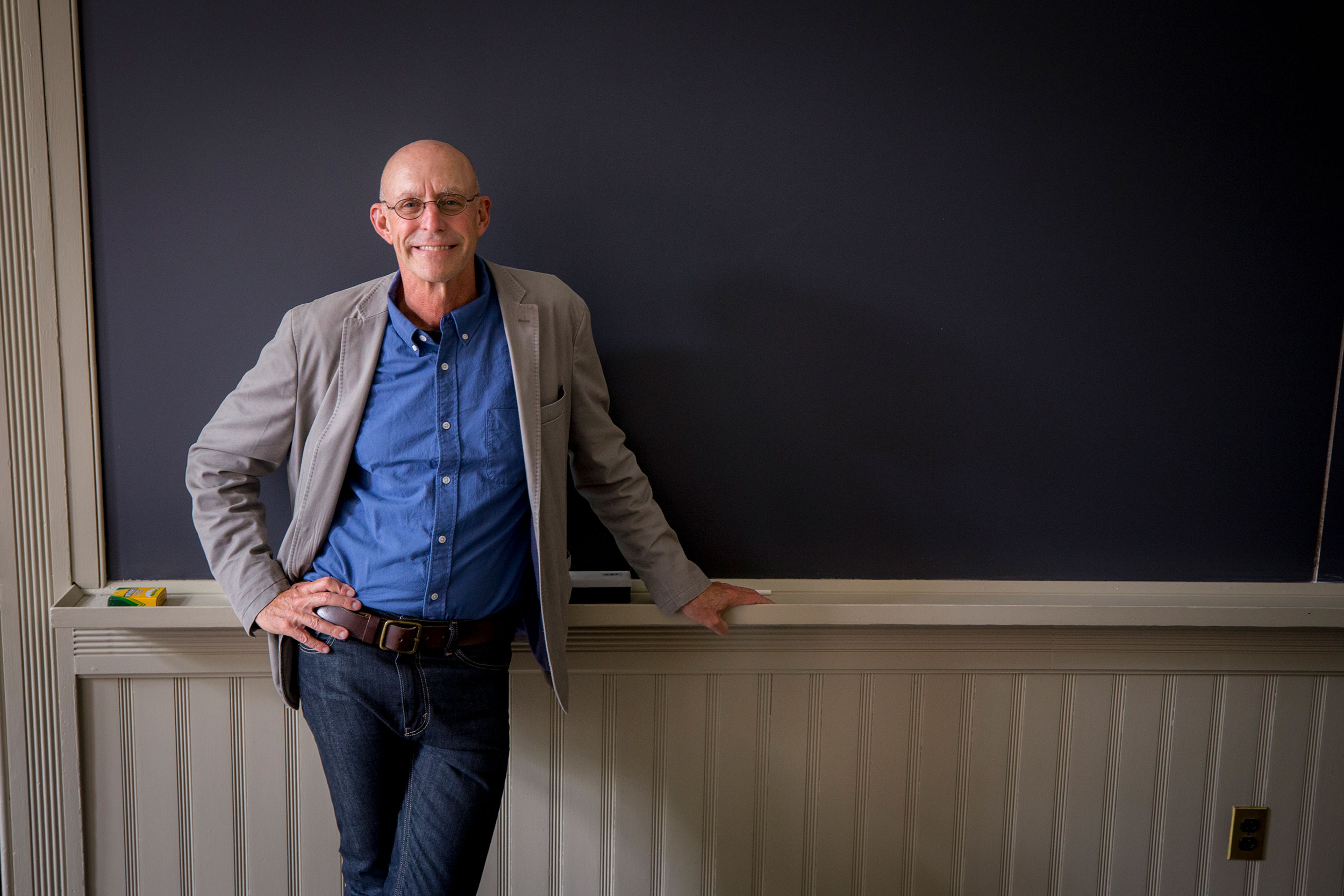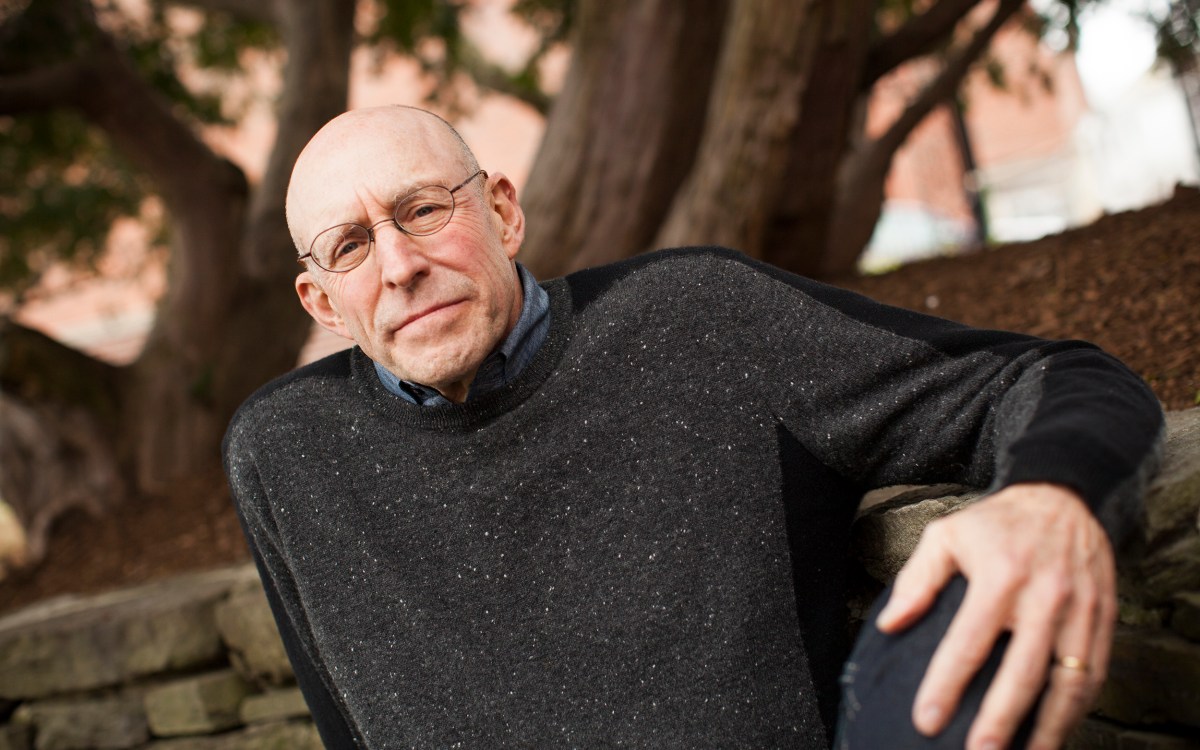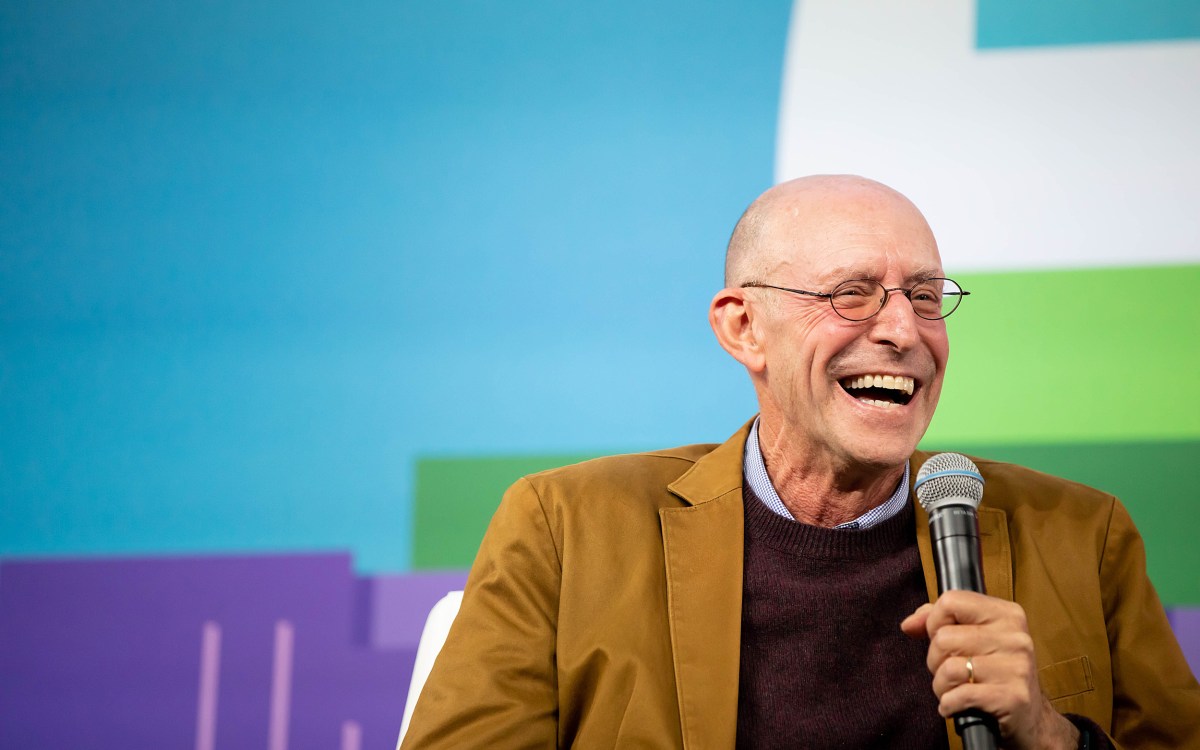
In his new book, Michael Pollan provides a contextual backdrop to how we think about and use drugs.
Rose Lincoln/Harvard file photo
Michael Pollan digs deeper into drugs
Author and professor investigates opium, caffeine, and mescaline in ‘This Is Your Mind on Plants’
In 2019, nearly 50,000 Americans died from opioid-related overdoses. In 2020, a record year for drug overdoses, that number rose to nearly 70,000, an increase driven in part by limited health care resources, shortages of overdose antidotes, and increased isolation during the pandemic. It’s not surprising that many people think of opium as a menace and nothing else.
Michael Pollan, whose books include “The Omnivore’s Dilemma,” “How to Change Your Mind,” and, most recently, “This Is Your Mind on Plants,” reminds us that opium can sometimes be a blessing. Many surgical procedures would be unbearable without it, and an opioid prescription can ease a patient’s suffering during palliative care. Opium, like all drugs, requires context, he notes.
In his latest work, Pollan, the Lewis K. Chan Arts Lecturer and Professor of the Practice Non-Fiction, writes about three drugs derived from plants: opium in poppies, caffeine in coffee beans and tea leaves, and mescaline in peyote. We asked him about the research behind the book and the changing nature of how we think about and use drugs. The interview was edited for clarity and length.
Q&A
Michael Pollan
GAZETTE: Harvesting a drug from a plant is a labor-intensive process. Why are we so dedicated to altering our minds?
POLLAN: Something about us is just not satisfied with normal consciousness. We seek to vary it and transcend it in many ways. Relief of boredom or of pain could be motivations. There’s also something in us that seeks to transcend the ego and the limitations of our narrowly circumscribed identities. Whatever the reason, it’s a universal human drive to change consciousness, right there with the sex drive or the drive to find food. It just seems less obvious what its purpose is.
GAZETTE: In the first section of the book, which covers opium, you include an updated version of an essay you wrote in 1997 about growing poppies in your backyard and navigating the legality of that process. What thoughts did you have when you revisited the piece?
POLLAN: I was writing about this muffled crackdown by the Drug Enforcement Administration of people growing Papaver somniferum, a perfectly legal flower that many people have in their gardens. Today that seems so overwrought, fearful, and paranoid. I learned that if a poppy is grown with the knowledge and intent to turn it into opium, it’s a serious federal crime. At that time, the government was worried that a fad for growing opium would explode. They put a lot of resources into intimidating florists, garden centers, and gardeners. They even removed the poppies in Monticello from Thomas Jefferson’s garden.
Yet at the same time, unbeknownst to me and to the government, Purdue Pharma was introducing OxyContin. It was a legally approved drug that launched the opioid crisis, while my poppies were illegal. That’s a significant historical irony. That article really is a parable of the drug war and how misguided it was
GAZETTE: Meanwhile, caffeine is a drug that is widely accepted in our society. Most of us have it every day in coffee or tea.
POLLAN: Caffeine lubricates the machinery of modern life. Drugs either contribute to the smooth workings of society and the economy, or they muck it up. Caffeine fosters a kind of consciousness that’s very sober and focused, and it gives people energy. It’s a great boon to capitalism that way.
GAZETTE: The book also discusses peyote, a plant from which mescaline is derived. The Native American Church has long conducted peyote ceremonies, as a means for healing. You write about the cultural appropriation of peyote by non-Native people. Can you describe what’s happening?
POLLAN: Peyote only grows in a very narrow band in Texas along the Rio Grande. There’s a literal appropriation happening when non-Native people harvest or buy peyote. By doing so, they are diminishing a very precious resource that belongs to Native Americans. It’s a resource that is critical to their well-being.
There’s also the issue of non-Native people imitating the Native American ceremony. There are deep principles of psychedelics use that are shared across indigenous populations. At a peyote ceremony, there is always an elder involved. It’s done with great reverence, and a sense of clear intention. While writing this book, I heard many stories of non-Native people conducting peyote ceremonies that, without these principles, trivialize the Native American Church and further diminish the resource.
GAZETTE: You’ve said that drugs are generally defined by being helpful or harmful to society. Can a drug change its identity?
POLLAN: The identity of drugs is always changing. Look at cannabis. Marijuana is now legal for recreational use in 19 states. That was a drug that was very much at the heart of the drug war. I think it’s also happening with psychedelics. In the 1960s, they were considered disruptive, but today, we’re facing a serious mental health crisis and psychedelics may offer some relief.
Each drug should be looked at in terms of its specific history, pharmacology, and social effects. They do have dangers — it’s not obvious how to have a productive relationship with something like an opiate. [But] if we can figure out how to safely and constructively fold them into our society, drugs can be tools with legitimate uses.








